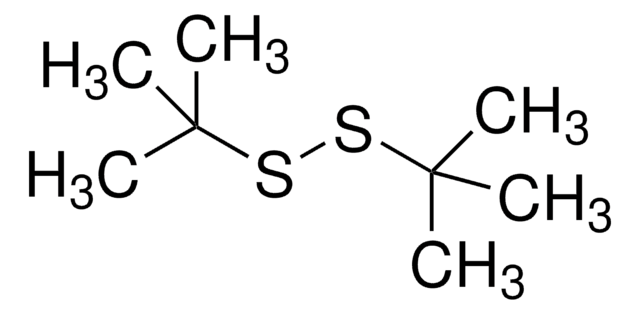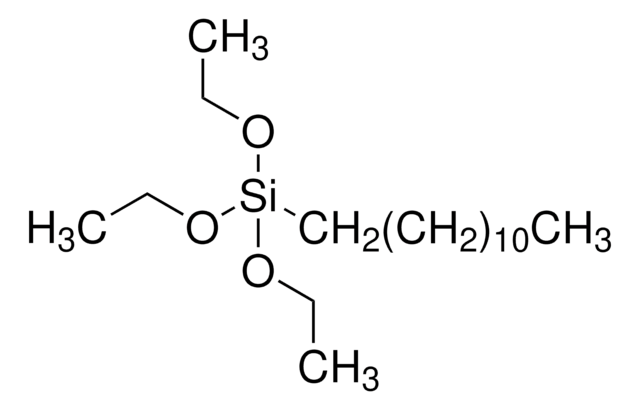376221
Trimethoxy(octyl)silane
96%
Synonym(s):
Octyltrimethoxysilane
About This Item
Recommended Products
assay
96%
form
liquid
refractive index
n20/D 1.416 (lit.)
density
0.907 g/mL at 25 °C (lit.)
SMILES string
CCCCCCCC[Si](OC)(OC)OC
InChI
1S/C11H26O3Si/c1-5-6-7-8-9-10-11-15(12-2,13-3)14-4/h5-11H2,1-4H3
InChI key
NMEPHPOFYLLFTK-UHFFFAOYSA-N
Looking for similar products? Visit Product Comparison Guide
General description
Application
signalword
Danger
hcodes
Hazard Classifications
Acute Tox. 3 Inhalation - Skin Irrit. 2
Storage Class
6.1C - Combustible acute toxic Cat.3 / toxic compounds or compounds which causing chronic effects
wgk_germany
WGK 1
flash_point_f
203.0 °F - closed cup
flash_point_c
95 °C - closed cup
ppe
Eyeshields, Gloves
Certificates of Analysis (COA)
Search for Certificates of Analysis (COA) by entering the products Lot/Batch Number. Lot and Batch Numbers can be found on a product’s label following the words ‘Lot’ or ‘Batch’.
Already Own This Product?
Find documentation for the products that you have recently purchased in the Document Library.
Customers Also Viewed
Our team of scientists has experience in all areas of research including Life Science, Material Science, Chemical Synthesis, Chromatography, Analytical and many others.
Contact Technical Service











